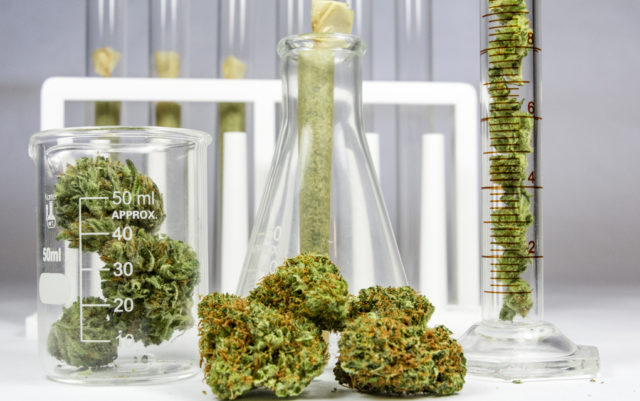
Cannabis’ status as a Schedule 1 substance makes conducting scientific research on its medicinal qualities challenging. Obtaining the licenses to study cannabis in a lab has proven bureaucratically daunting for researchers; and even if a research team does manage to get federal approval, they are required to use specific, government-grown cannabis from the Drug Enforcement Agency (DEA) through the National Institute of Drug Abuse (NIDA) for their research — cannabis that is infamously (though not surprisingly) really bad.
Congress is working to cut through some of that red tape finally, though. This month, two separate bills passed in the House and Senate respectively, both aiming to expand cannabis research in the U.S. and make it easier for scientists to get the necessary licenses.
However, the DEA made something very clear: Even if one or both bills become law, the feds will maintain sole ownership and control over all of America’s “research-grade” marijuana — just as they have for the last 50 years. If you want to test cannabis in a lab in the U.S., you have to test the government’s home-grown.
The first research bill, which passed in the House on Dec. 9, is known as the Medical Marijuana Research Act. It would establish a simplified registration process for any scientists interested in studying cannabis by reducing approval wait times, minimizing security requirements and eliminating further levels of protocol review. The lead sponsors of this bill, Rep. Earl Blumenbauer (D-Oregon) and Rep. Andy Harris (R-Maryland), pushed it forward from opposite sides of the aisle.
“Now, unfortunately, because of the public policy we’ve had in place with marijuana and its scheduling, [research] simply couldn’t be done,” Harris said on the House floor prior to the vote. “You can’t do it under the current scheduling… This is on us. It shouldn’t have taken so long to get to this point.”
The second bill, passed in the Senate on Dec. 16, is known as the Cannabidiol and Marijuana Research Expansion Act. Under it, the U.S. attorney general would be given a 60-day deadline to either approve an application for cannabis research or request additional information. It would also mandate the DEA approve applications from businesses to be manufacturers of marijuana-derived, FDA-approved drugs.
The biggest difference between these two bills is that the House’s Medical Marijuana Research Act would make it so that researchers could access cannabis from local state-legal dispensaries. For half a century, all cannabis used in research in the U.S. has come from a single federally approved grow facility at the University of Mississippi.
But the weed is terrible. So terrible, in fact, that in 2019, the University of Northern Colorado decided to do a genetic study on the DEA’s research-grade marijuana and found the quality so poor that it’s actually genetically closer to hemp than marijuana. That means the DEA’s research-grade marijuana can’t accurately reflect the effects of the genetically selected, high-potency, sugar nuggets coming out of commercial and medical dispensaries today.
That’s undoubtedly warping the results of U.S. cannabis research. If scientists had access to commercial cannabis, as outlined in the Medical Marijuana Research Act, not only would their findings be more accurate and more distinct, but local businesses would also have an opportunity to contribute to science in their own industry.
But, on Dec. 17, the DEA put its foot down. It published a final rule in the Federal Registrar, aimed at expanding the number of authorized growers of research-grade marijuana. In it, the DEA concedes that more producers will be needed if the avenues for research are going to be expanded — however, the agency remarks that it won’t work with criminals. And, according to its guidelines, anyone who currently grows or sells cannabis, or has in the past, is a felony criminal, regardless of their state’s laws.
“While the DEA Administrator has discretion to weigh the statutory factors and any one factor need not be dispositive, an applicant’s prior compliance with Federal law is a relevant consideration when determining whether to grant an application for registration,” the DEA’s recent filing states.
So, the agency is seeking more research-grade producers — just not anyone who has prior experience in commercial cannabis cultivation. And it will maintain sole ownership and control over those hand-selected, government-approved producers and the product they send to laboratories.
What that means for the quality of research-grade marijuana remains to be seen. But Congress is closer than ever to passing some form of federal cannabis research legislation — which is progress in and of itself.














